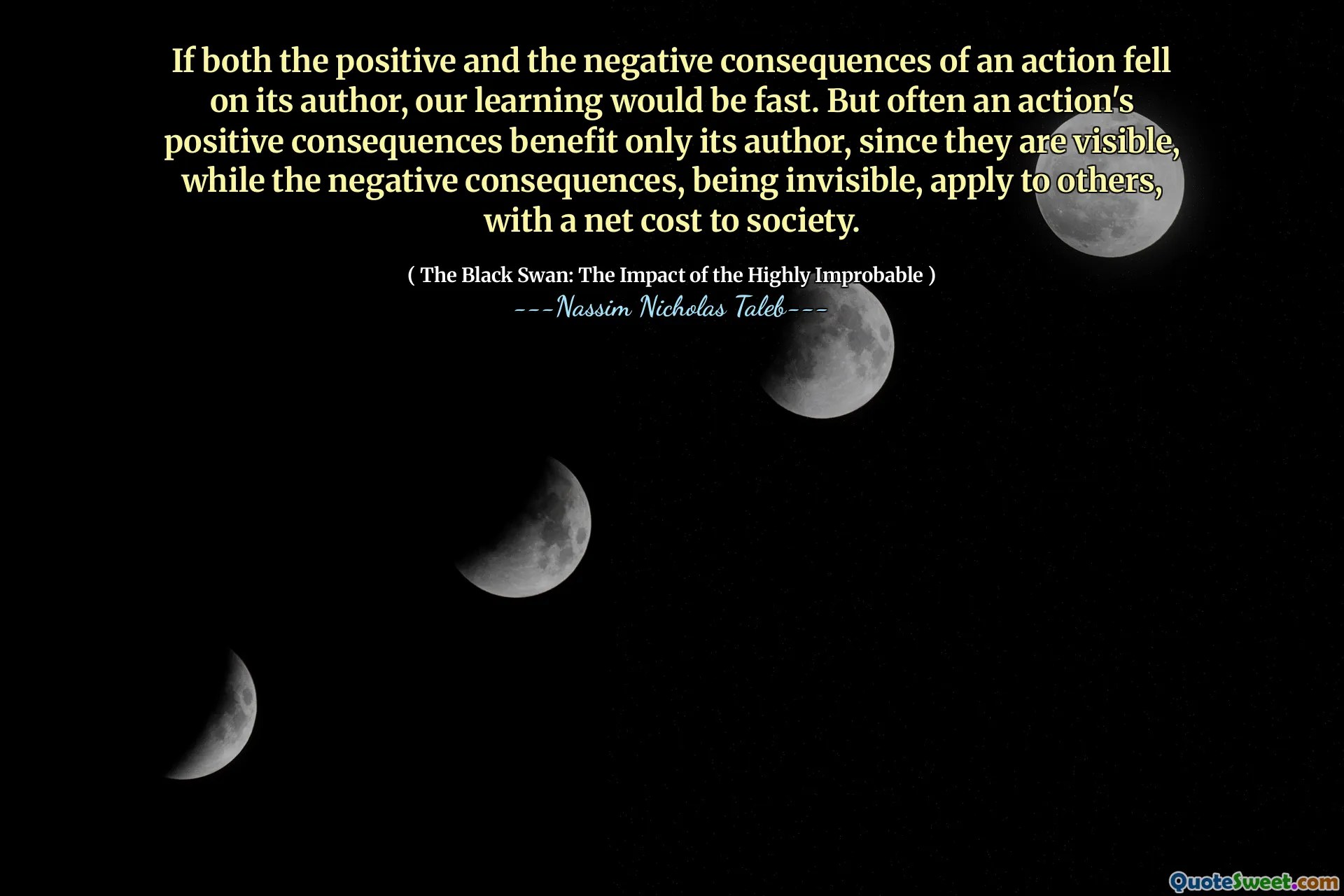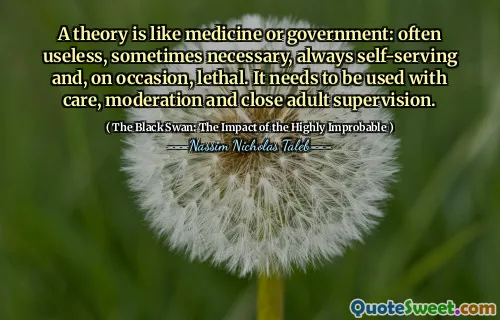
If both the positive and the negative consequences of an action fell on its author, our learning would be fast. But often an action's positive consequences benefit only its author, since they are visible, while the negative consequences, being invisible, apply to others, with a net cost to society.
This quote highlights a fundamental challenge in human decision-making and societal behavior: the asymmetry between the distribution of benefits and costs associated with actions. When individuals bear both the positive and negative consequences of their choices, they are naturally incentivized to act more responsibly and thoughtfully because the impact directly affects them. Such internalization of risks and rewards encourages more prudent behavior, fostering learning and adaptation.
However, in many scenarios, the positive outcomes of decisions are often concentrated on the individual who makes the choice, and these benefits are typically visible or tangible. For instance, a business owner might reap profits from an innovative product, or a researcher might gain fame for a groundbreaking discovery. In contrast, the negative consequences—such as environmental damage, societal harm, or economic downturns—may be diffuse, delayed, or less visible, and often affect others rather than the decision-maker directly. This results in a misalignment of incentives, leading individuals or corporations to underestimate or neglect potential negative externalities.
Such disparity is a core concern in ethics, economics, and public policy because it can lead to behaviors that are detrimental on a larger scale, despite apparent gains for the individual. Recognizing and addressing these externalities is essential for fostering responsible action and ensuring societal welfare. Systems and regulations that internalize external costs—like taxes on pollution or legal liabilities—are attempts to correct this imbalance. Ultimately, understanding this dynamic underscores the importance of transparency, accountability, and structural reforms to align individual incentives with societal good, ensuring that learning from our collective actions is maximized and negative externalities minimized.
The quote thus urges us to reflect on how incentives and visibility influence behavior and decision-making and compels societies to create mechanisms that reflect the true costs and benefits for all stakeholders involved.











